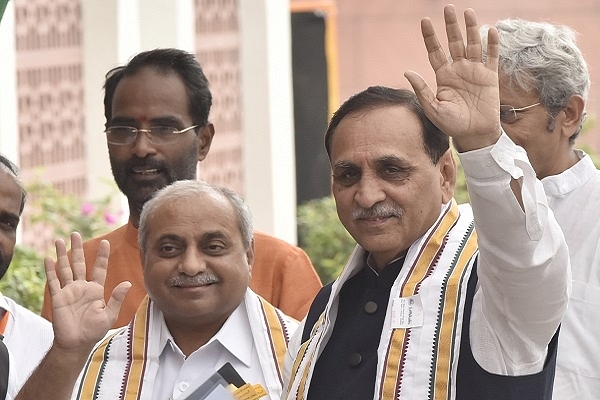Insta
General Category Reservation: Gujarat Becomes First State To Implement 10 Per Cent Economic Quota In Education, Jobs

Gujarat Chief Minister Vijay Rupani - Right, Deputy Chief Minister Nitinbhai Patel - Left (Sonu Mehta/Hindustan Times via Getty Images)
Gujarat Chief Minister Vijay Rupani has stated that his government will begin the process of implementing the Constitution (103 Amendment) Act, 2019 from today (14 January), reports Indian Express.
The Act reserves ten per cent of the seats in education and jobs for economically weaker sections in the general category.
"The economically weaker sections from the general category will get 10 percent reservation in admissions to higher education and government jobs starting 14 January," said the Gujarat government in a release.
The release added that the new quota would not apply to recruitment or admission processes - tests or interviews - which were started before 14 January.
This announcement comes a day after the President gave his assent to the Amendment bill, thereby adding the new reservation clauses to the Constitution.
In 2016, though the BJP government in Gujarat under Anandiben Patel, had announced a similar ten per cent quota for the economically backward among upper castes, the ordinance was squashed by Gujarat High Court.
Reservation goes private
The amendment provides for ten per cent reservation quota in private educational institutions, whether aided or unaided by the state, apart from the state-run ones like the IITs and IIMs. However, minority educational institutions are exempt from this provision.
The new reservation will be applicable over and above the total fifty per cent quota already reserved for scheduled castes (SCs), scheduled tribes (SCs) and other backward classes (OBCs).
Introducing ElectionsHQ + 50 Ground Reports Project
The 2024 elections might seem easy to guess, but there are some important questions that shouldn't be missed.
Do freebies still sway voters? Do people prioritise infrastructure when voting? How will Punjab vote?
The answers to these questions provide great insights into where we, as a country, are headed in the years to come.
Swarajya is starting a project with an aim to do 50 solid ground stories and a smart commentary service on WhatsApp, a one-of-a-kind. We'd love your support during this election season.
Click below to contribute.
Latest